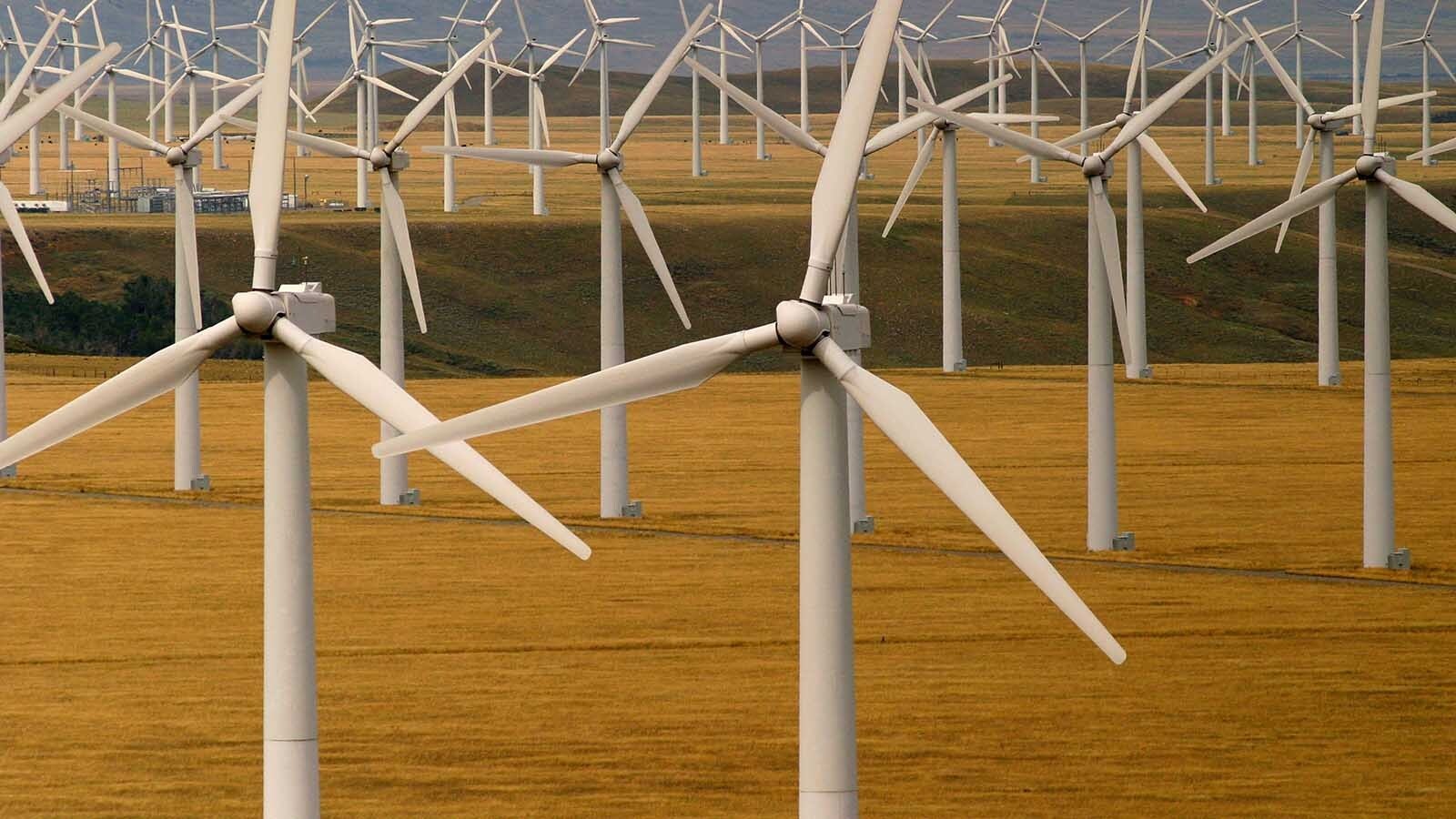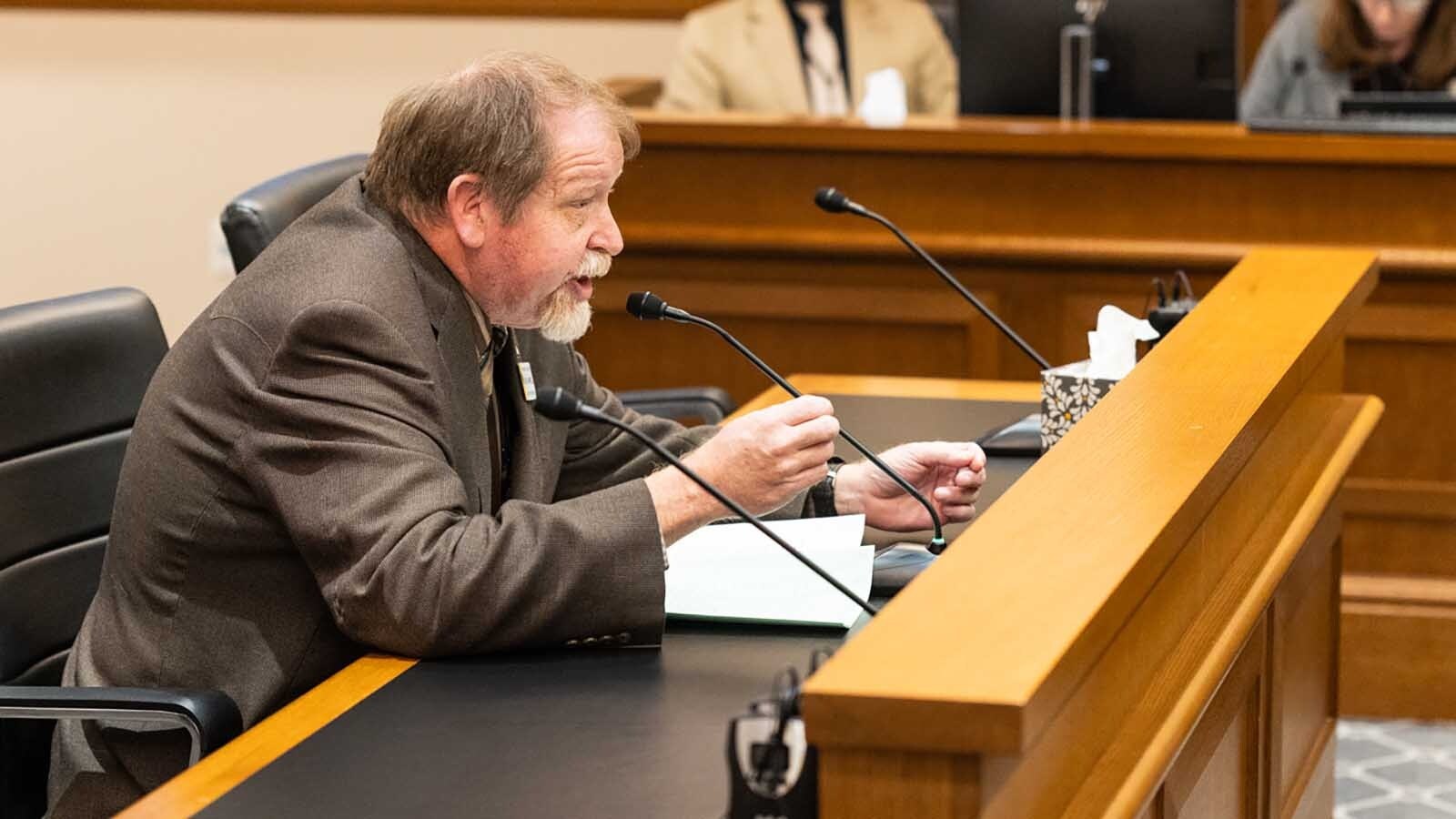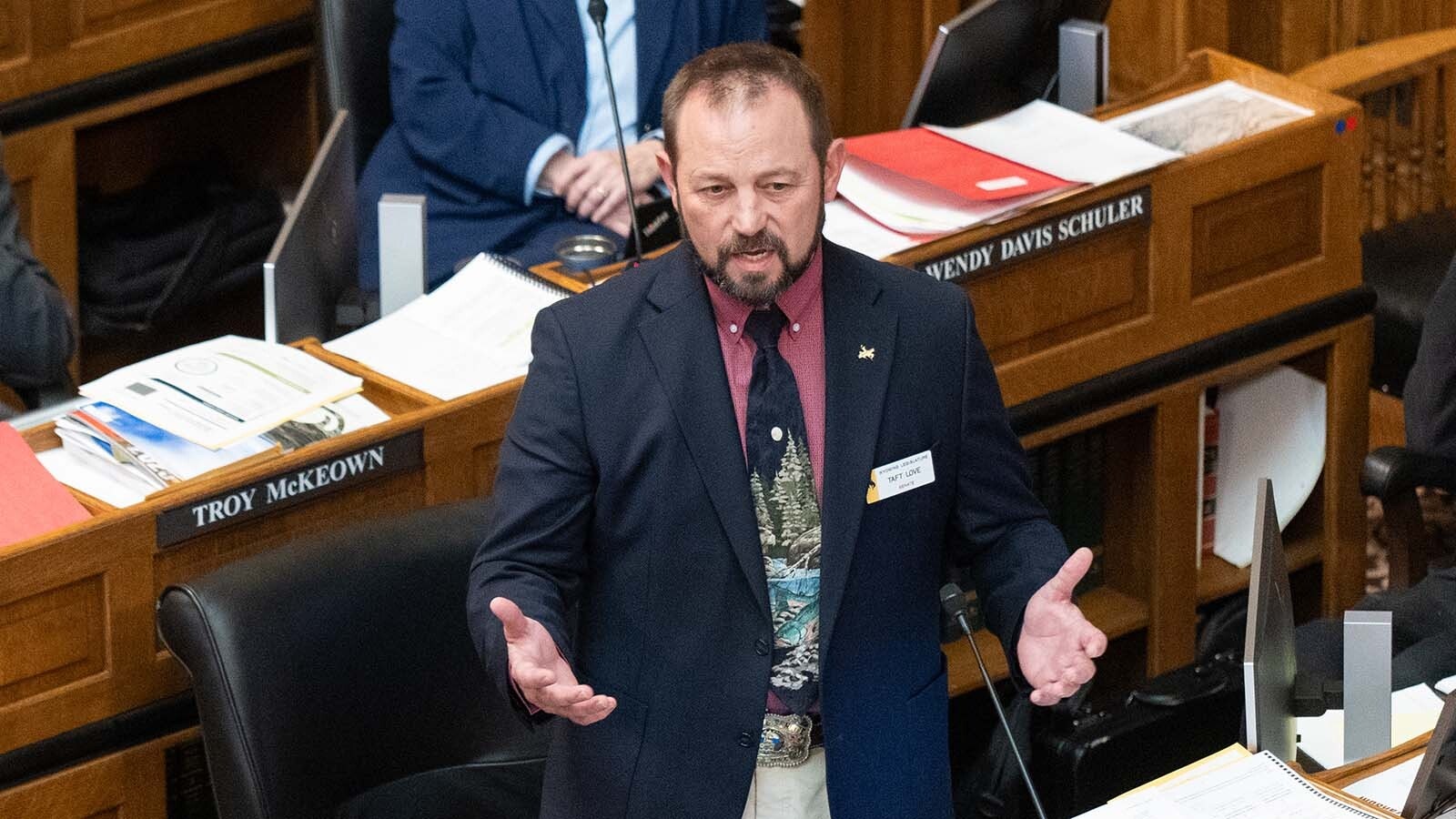Federal investigators have documented a series of illegal oil field waste disposal cases across the American West, highlighting enforcement challenges as oil and gas production continues to expand in the region.
The most recent case concluded last month when two Wyoming oil field supervisors were sentenced for directing crew members to bury contaminated waste on federal land in Carbon County.
The case, which began with an anonymous tip, represents one in a string of prosecutions involving improper disposal of oil and gas wastewater in Wyoming, Utah and New Mexico.
The Wyoming case kicked off with an anonymous tip to the Wyoming Oil and Gas Conservation Commission.
"WOGCC began an investigation and determined that the information was credible and that it was occurring on Federal locations," said Joe Scott, natural resources program manager with the WOGCC. "WOGCC coordinated with the BLM and subsequently let them take the lead on the investigation."
The confidential informant detailed illegal dumping activities at the East Echo Springs Saltwater disposal facility in Carbon County.
On Sept. 18, 2018, the Bureau of Land Management Wyoming state chief ranger received information that contractors working for an energy company were dumping waste generated from an oil-water separator and produced water storage tank maintenance operations on BLM-leased well pads.
Darwin Crawford and Mark Orchard, both field operation managers for Crowheart Energy working near Baggs, had instructed crew members between April 30 and May 17, 2018, to "dig a hole and dump stuff from the junk tank" at the facility located southwest of Rawlins.
The East Echo Springs site was permitted only for disposal of produced water through deep underground injection, not for burying solid oil waste. About 10 barrels of oil waste material was buried at the defendants' direction.
The investigation moved swiftly once authorities received the tip. On June 27, 2023, the BLM and EPA excavated the suspected burial site identified by the confidential informant. Soil samples taken by investigators showed petroleum hydrocarbon levels of 15,200 parts per million, 16,100 parts per million, and 11,000 parts per million at the illegal dump site, compared to 18 parts per million in uncontaminated soil samples from the same location.
Both defendants admitted they signed off on daily work tickets and invoices for this and other work they directed during the dumping period. A federal grand jury in Wyoming indicted both individuals on Nov. 15, 2023, after sampling test results confirmed that petroleum hydrocarbons had been buried at the suspected site.
On June 7, 2024, the EPA issued an expert report analyzing the contaminated soils, concluding that the illegally buried waste material was a serious problem. According to the U.S. Department of Justice, the illegal dumping "caused permanent damage to U.S. lands owned by the taxpayers and endangered potential nesting sites" for the greater sage grouse and sage thrasher.

Timeline And Remediation
When presented with the evidence against them, Crawford and Orchard didn’t make excuses.
DOJ spokesperson Lori Hogan told Cowboy State Daily, "The defendants did not deny the charges and were fully cooperative, as was Crowheart Energy LLC even though the LLC had nothing to do with the incident.”
Hogan noted that while it's unclear exactly when the confidential informant came forward, "not that much time elapsed from the time it was determined there was contamination to when the pair were arrested."
From Oct. 25-31, 2024, Crowheart Energy remediated the site to meet BLM cleanup standards.
Both men were sentenced to one year of supervised probation and ordered to pay $28,330.16 in restitution after pleading guilty to "willful injury and depredation of government property."
Crawford entered his guilty plea on May 30, 2025, while co-defendant Orchard pleaded guilty on June 9, 2025. Both were sentenced Aug. 22.
Cross-State Dumping
A separate case involves two contractors facing felony charges for allegedly dumping Wyoming oil field waste in Utah. Jeremy Oliver, 47, of Evanston, Wyoming, and Braden Cornia, 37, of Woodruff, Utah, each face four third-degree felony counts of "unlawful discharge of pollutants," according to court documents filed in Rich County, Utah.
According to the Utah Trust Lands Administration, the men were contracted to transport wastewater from an oil production site in Bear River, Wyoming, to a disposal facility in La Barge, Wyoming — a distance of more than 100 miles.
Instead, investigators allege, they dumped the material into a pond near Woodruff, Utah, approximately 13 miles from the Bear River site.
The illegal dumping reportedly began in November 2023 and continued into 2024, according to court filings. The Utah Trust Lands Administration received a tip about the activity in February 2024.
"When I first visited the pond-like area in Rich County, I smelled a strong chemical odor and saw that surrounding plants had turned black and died," said Brent Kasza, a special agent with the Utah Trust Lands Administration, according to the agency's statement.
According to investigators, the wastewater contained oil, hydraulic fluid, grease, sand, mud and other contaminants commonly found in wastewater produced during oil drilling and production processes.
The company that owns the Bear River oilfield was not aware of the illegal dumping and has not been charged in connection with the case, according to the Trust Lands Administration.
Under Utah law, the defendants could face fines of $50,000 per day of violation if convicted of knowingly discharging pollutants in violation of statutory or permit conditions, according to state environmental regulations.
Larger Pattern
A comprehensive study published in Applied and Environmental Microbiology in February 2024 documented the environmental impact of 39 illegal dumps of oil and gas wastewater discovered in southeastern New Mexico in November 2017.
According to the study, the dumps released approximately 600,000 liters of fluid onto dryland soils overlying the Permian Basin.
The research, conducted by scientists from the U.S. Geological Survey and other institutions, found that the illegal dumping significantly altered soil geochemistry and microbial community composition in the affected areas.
This led to shifts toward salt- and hydrocarbon-tolerant bacterial species that are not typically found in desert soils, potentially affecting long-term ecosystem function.
Federal Enforcement
The Bureau of Land Management oversees oil and gas operations on federal lands through a comprehensive inspection and enforcement program. According to BLM data, the agency performs over 25,000 inspections annually on oil and gas lease and well sites to ensure adherence to federal laws and permit conditions.
While concerning when it happens, illegal dumping of oil and gas waste isn’t common.
"I don't see it often personally from a public information standpoint," said Micky Fisher, a public affairs specialist with the BLM, regarding illegal dumping cases.
Legal disposal of oil field waste requires transport to facilities specifically permitted to handle contaminated materials.
According to court documents in the Wyoming case, proper disposal would involve transport to facilities such as the Shute Creek Treating Facility in La Barge, which operates acid gas injection wells for safe underground disposal of petroleum-related materials.
The costs and logistics of proper disposal create economic incentives that some operators attempt to circumvent through illegal dumping.
In the Utah case, investigators noted that the defendants "were pocketing the money provided for their expenses they didn't incur" by dumping waste 13 miles from the source rather than transporting it more than 100 miles to the proper facility, according to the Utah Trust Lands Administration.
"Discharging pollutants near a small, rural town in Utah is unconscionable," said Michelle E. McConkie, director of the Utah Trust Lands Administration, according to the agency's statement. "This illegal activity appears to have caused damage to the immediate environment and also has the potential to cause harm to the local community."
David Madison can be reached at david@cowboystatedaily.com.





